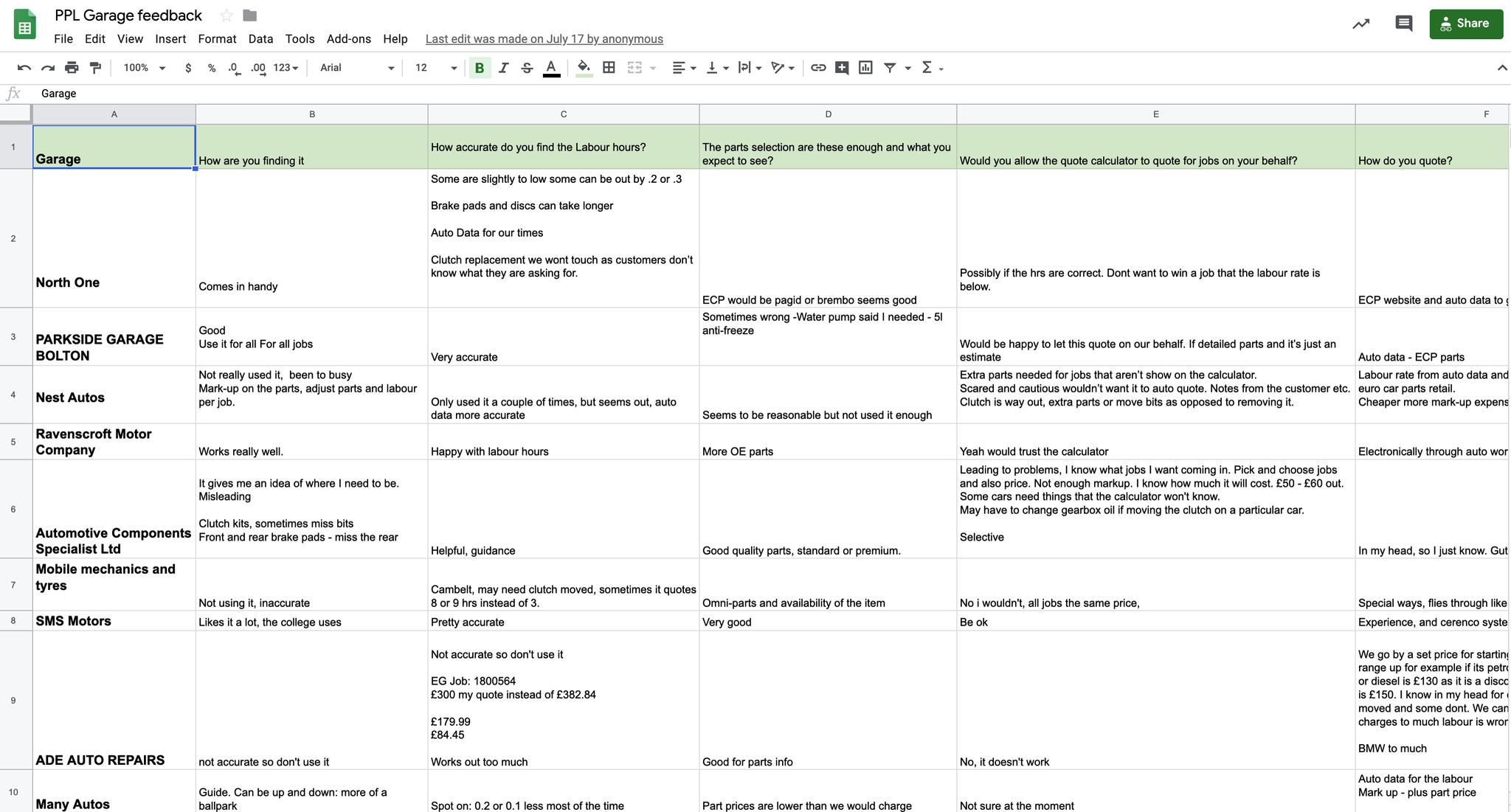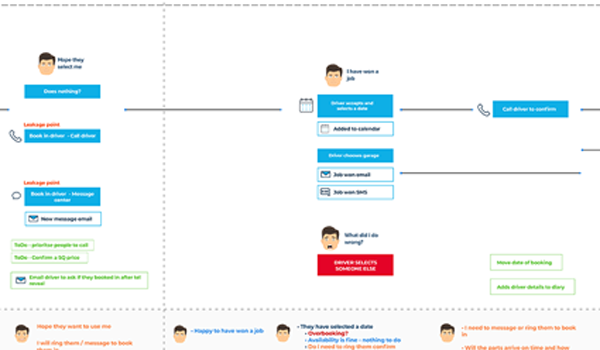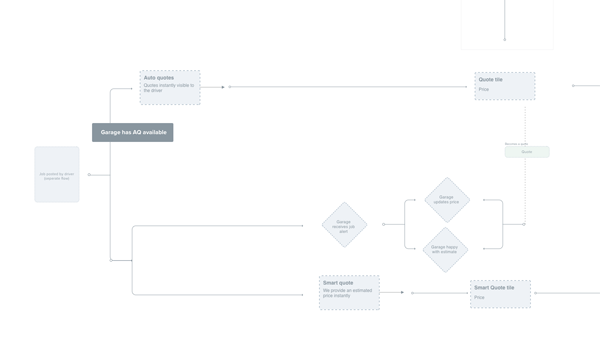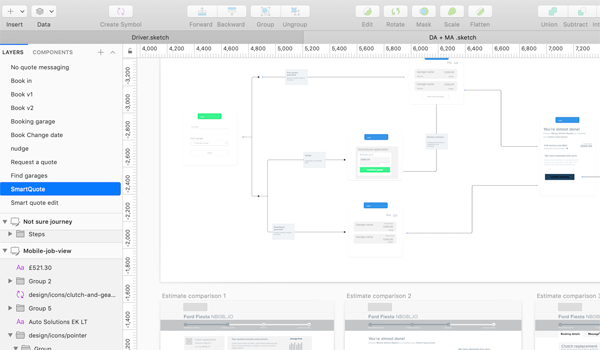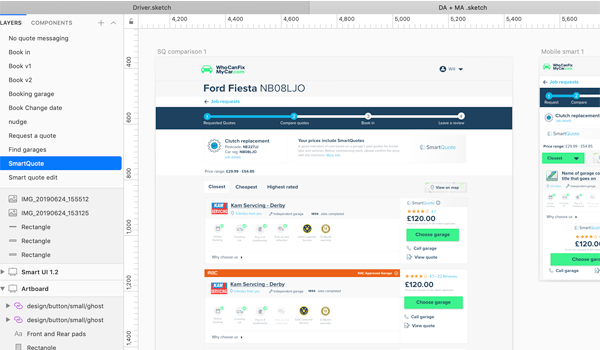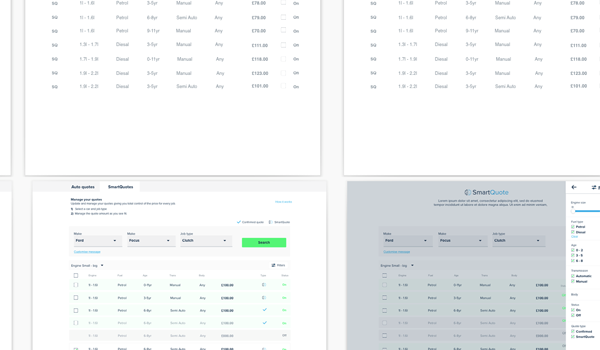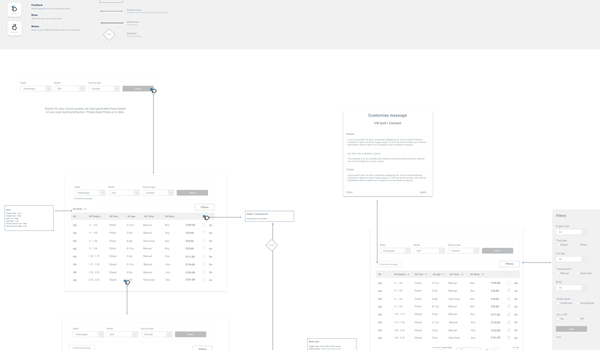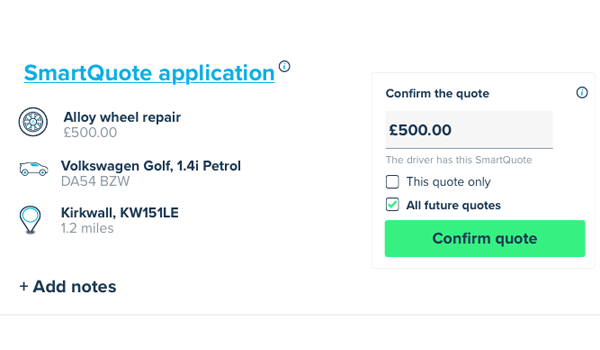AI and machine learning
Product design and data science worked seamlessly to meet user needs and hit KPIs. If a driver gets a price within the first minute they engage more, which increase revenue and increases KPIs.
My Role: Lead Product Designer
Team: Data scientist, product manager, copy writer, marketing manager
- Quote rate increased by +145%
- Acceptance rate increased by +36%
Acheivements
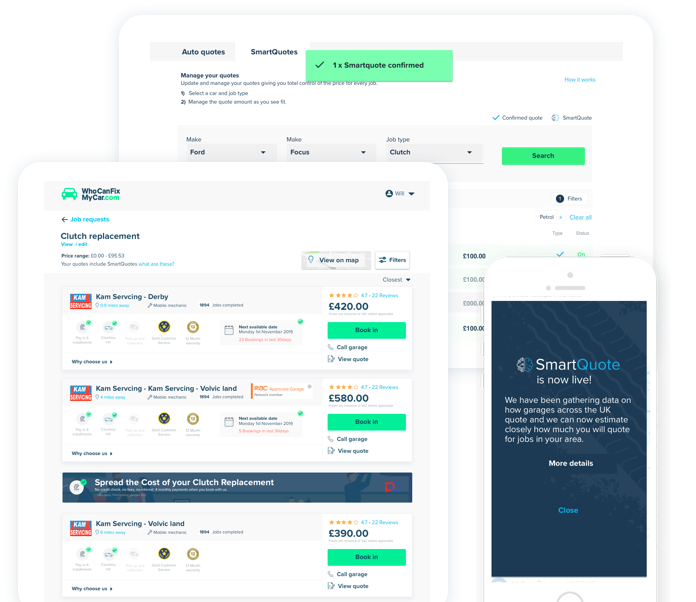
Give drivers an instant accurate price to allow them to get booked in for their car repair.
Problem statement
Increase quote rates by +50%, increase acceptance rate by +20%
KPIs to gauge success
Empathise with the users
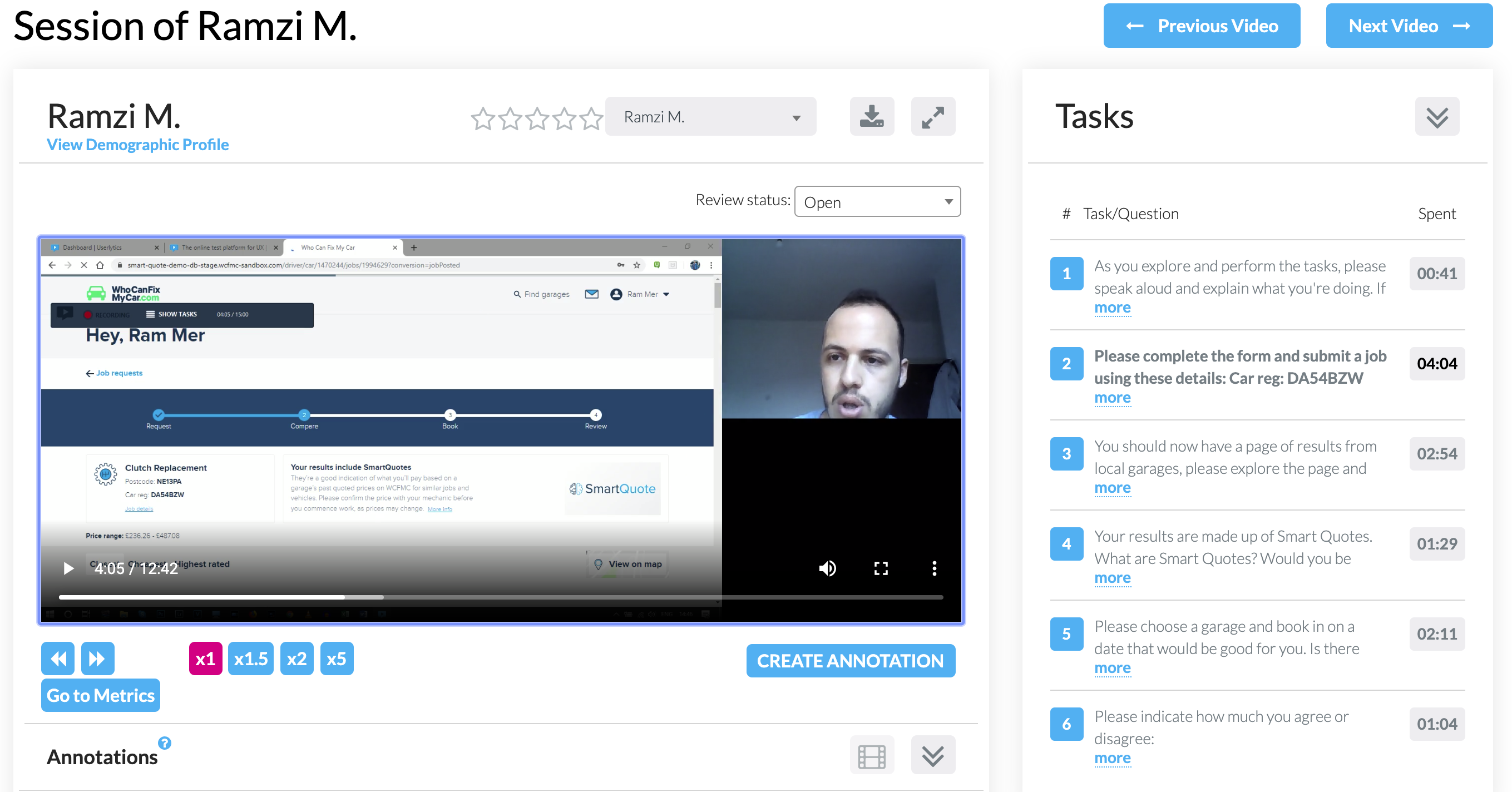
Interviews and surveys
Do drivers expect the price to be final? How would they feel about us creating a price for them as opposed to a bespoke quote coming from the garage.
MVP for feedback
We released an MVP with 20 volunteer garages that we could then gather feedback on:
- How accurate was the price
- What factors affect prices

Concerned that the price we generate is wrong, worried about drivers accepting a wrong price and bad customer relationships leading from this.
Key comments from garages
“I dont expect the price to be final, I expect this to go up or down when they see the car”
Key comments from drivers
Define
I gathered all the results and held a session consisting of affinity diagram sessions to consolidate the results and define the start point.
- Drivers expect prices to move, however we need to ensure they know its a quote
- Garages want accurate prices:
- The AI has a tolerance of plus and minus 10% so we need to give the the power to manage and update prices.
- The parts plus labour calculations do not take into account the "Fudge factor". For example a certain model ford focus may not need a part removed to get it the timing belt.
- Garages need to update prices instantly and live.
- Garages need a management tool to view there prices and to update if they feel they need to. (They will have upwards of 300,000 potential quotes)
Some key patterns emerged
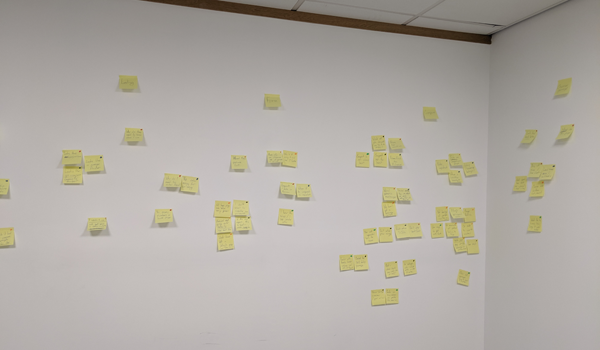
Affinity diagrams
Group all the feedback and findings to notice larger patterns and fuel conversation and planning within the team.
Design and Ideate
I then set out designing the flows, wireframes, interaction designs and prototypes, so we could test and iterate. Keeping our key user stories in mind.
Brain storm and feedback
With all the user feedback, flows, wireframes and UI I arranged a brainstorming session to discuss findings and gather feedback from the team.

The garage will want to view and manage all the quotes we provide, and we need to differentiate the quote types for drivers.
Key findings
Driver UI / interactions
Now that I have tested the wireframes and the brand, I then created the UI designs and created the prototype to then test and pass onto the devs.
All touch points need to be considered. UI design, emails designs, text messages, T&Cs and inperson correspondances with garage.
All touch points and end to end experience mapped
Interaction design problem
Garages want to be able to update a price in real time, we then need to show the change to the driver.
How will we update a price in real time on the comparison page whilst keeping the user in full control at all times.
Interation problem statment
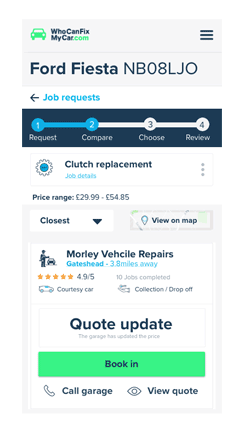
Garage management
"As a garage I want to be able to view all my prices and update and manage them easily"
User story
"What if a driver accepts a quote that's wrong? We need to be able to update and monitor prices in live time"
Garage concern
"The AI model needs to be kept up to date to learn"
Data science feedback
On-boarding for new garages
New garages that do not have any quoting behaviour to use to create a matrix for would initally not be able to have smartquotes. So to get around this we would need to get them to quote on 24 pre-defined car types, and job types to then use this date to cluster the results and allow us to generate 300,000 prices. Prototype 1 Prototype 1
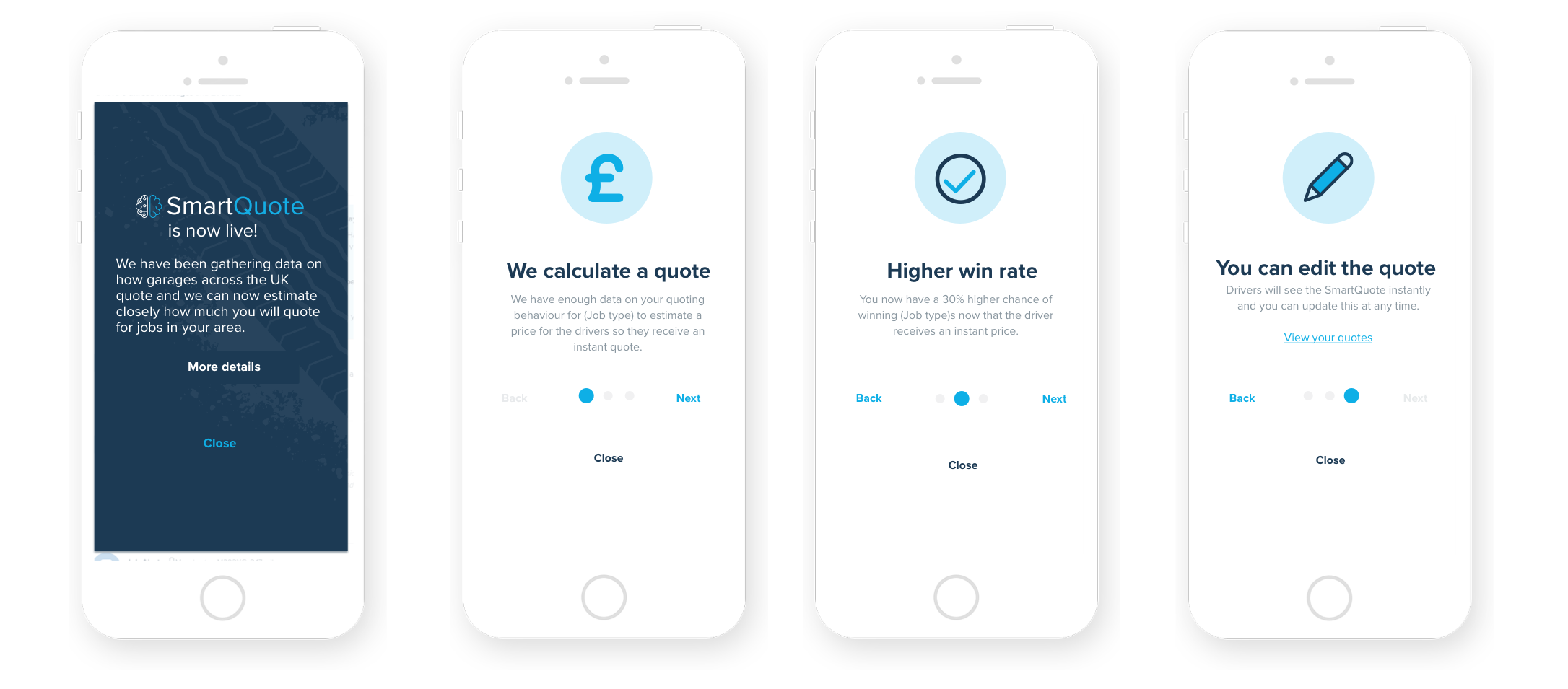
Usability tests with mechanics and drivers before release
Once we had a working version to test the end to end flow, I approached several garages that had indicated that they would like to be involved in the process of developing a solution.
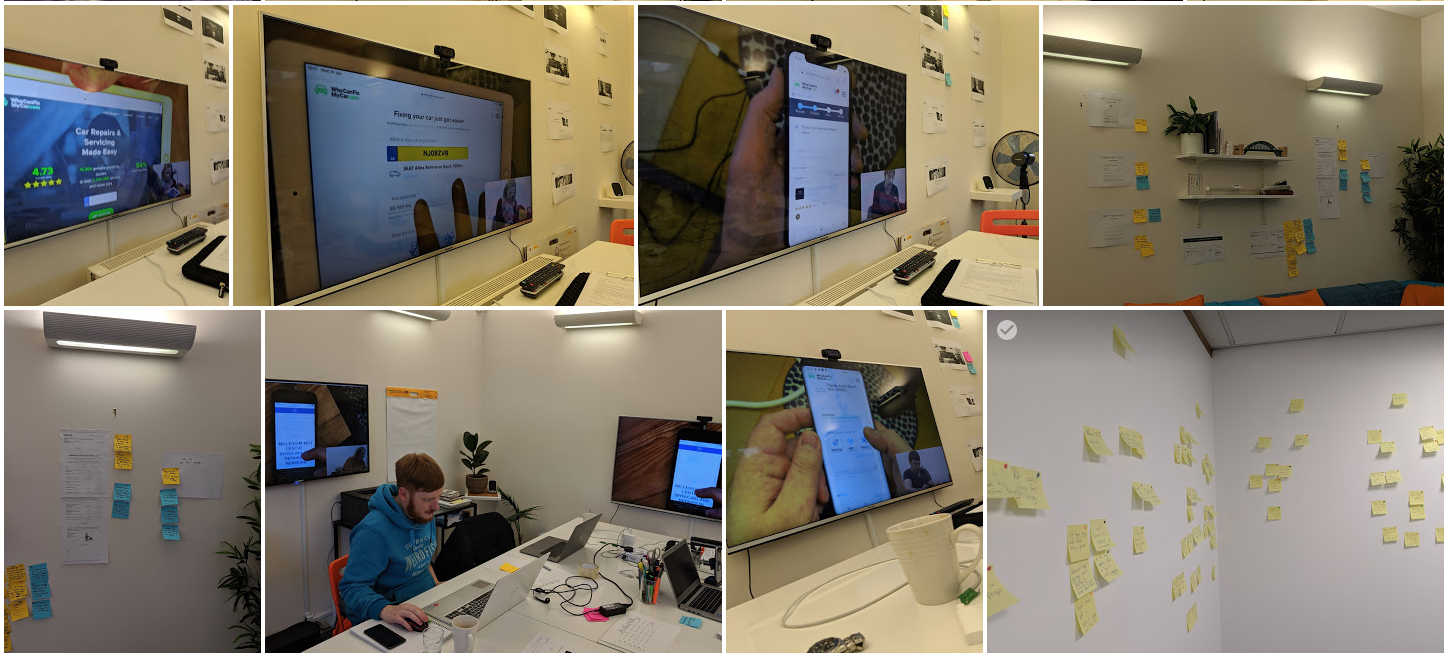
Releases
A session with the product team was then held, to work out how we want to release, how we are going to monitor and how we are going to gather data on the release.
Decisions
- Release on two job types first
- On-boarding to allow mechanics to authorise us to start quoting on their behalf
- Set up hot-jar to monitor users live
- Set up GA dashboard
- Data team daily feedback reports
- Release on a category by category basis and slowly introduce more features and improvements based of further feedback.
Instant quote rate increased by +145%, and accept rate increased by +36%;
Results
Next steps
- Working with a local Usability Lab and research team to test the full journey from the driver side.
- Base changes on this feedback.
- Release next interaction of the management tool.
